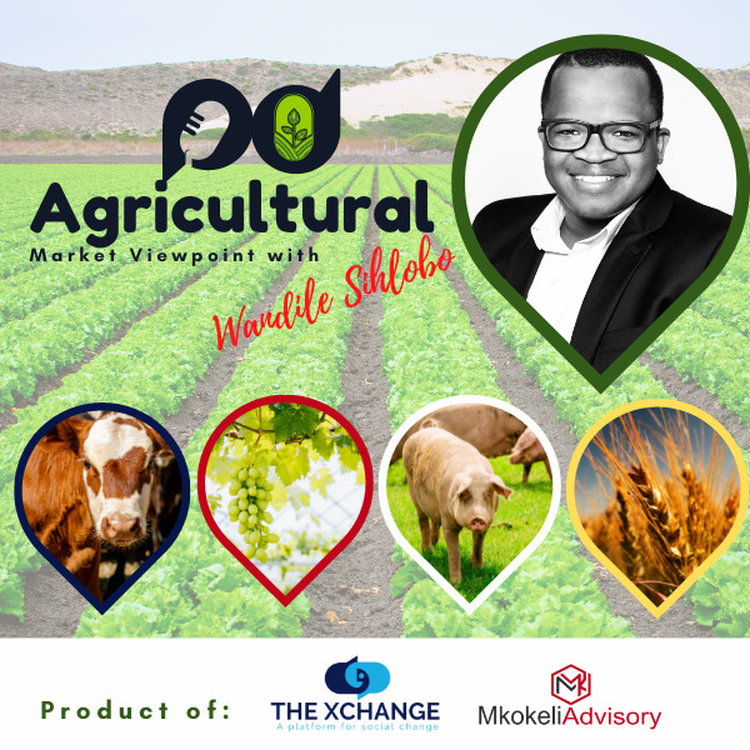
Farm jobs in SA, Black Sea Grain Deal
Loading player...
There was so much happening in agriculture this past week. I want to spotlight one positive domestic matter and a global one.
The data released by Statistics South Africa paints an encouraging picture of agricultural employment on the domestic front. In the first quarter of 2023, about 888 000 people were employed in primary agriculture, up 3% q/q and 5% y/y.
This is well above the long-term agricultural employment of 780 000. From a regional perspective, the Western Cape, KwaZulu-Natal, and Gauteng were the significant drivers of this employment. At the same time, other provinces showed a slight decline compared to levels seen in the first quarter of 2022.
The robust production conditions of various field crops, fruits, forestry and aquaculture were behind the improvement in agricultural jobs in the first quarter. Meanwhile, the livestock industry saw a decline in employment, which is unsurprising given the pressures presented by the higher feed costs at the start of the year and animal diseases for much of 2022 and into 2023.
Globally, the extension of the Black Sea Grain Deal for two more months is a positive development and helps support the moderation in global grain prices and food inflation.
A brief background for folks that haven't been following this stuff; the "Black Sea Grain Deal" started in July 2022, facilitated by the United Nations representatives, the Turkish government, and the Russian and Ukrainian governments.
Its goal is to allow grain movement from Ukraine to the world market without military attack by the Russians. This has been a success, as Ukraine has exported over 25 million tonnes of grains and vegetable oils since the deal started.
Notably, global food prices have also moderated considerably over time, partly due to increased shipments of grains and vegetable oils from the Black Sea region to the world market. In April 2023, the FAO Global Food Price Index was at 127 points, down by 9% from July 2022, when the deal was reached, and down 20% y/y.
We discuss more in this week's podcast segment.
My writing on agricultural economic matters are available on my blog: https://wandilesihlobo.com/
Podcast production by: Lwandiso Gwarubana, Richard Humphries, and Sam Mkokeli
The data released by Statistics South Africa paints an encouraging picture of agricultural employment on the domestic front. In the first quarter of 2023, about 888 000 people were employed in primary agriculture, up 3% q/q and 5% y/y.
This is well above the long-term agricultural employment of 780 000. From a regional perspective, the Western Cape, KwaZulu-Natal, and Gauteng were the significant drivers of this employment. At the same time, other provinces showed a slight decline compared to levels seen in the first quarter of 2022.
The robust production conditions of various field crops, fruits, forestry and aquaculture were behind the improvement in agricultural jobs in the first quarter. Meanwhile, the livestock industry saw a decline in employment, which is unsurprising given the pressures presented by the higher feed costs at the start of the year and animal diseases for much of 2022 and into 2023.
Globally, the extension of the Black Sea Grain Deal for two more months is a positive development and helps support the moderation in global grain prices and food inflation.
A brief background for folks that haven't been following this stuff; the "Black Sea Grain Deal" started in July 2022, facilitated by the United Nations representatives, the Turkish government, and the Russian and Ukrainian governments.
Its goal is to allow grain movement from Ukraine to the world market without military attack by the Russians. This has been a success, as Ukraine has exported over 25 million tonnes of grains and vegetable oils since the deal started.
Notably, global food prices have also moderated considerably over time, partly due to increased shipments of grains and vegetable oils from the Black Sea region to the world market. In April 2023, the FAO Global Food Price Index was at 127 points, down by 9% from July 2022, when the deal was reached, and down 20% y/y.
We discuss more in this week's podcast segment.
My writing on agricultural economic matters are available on my blog: https://wandilesihlobo.com/
Podcast production by: Lwandiso Gwarubana, Richard Humphries, and Sam Mkokeli

